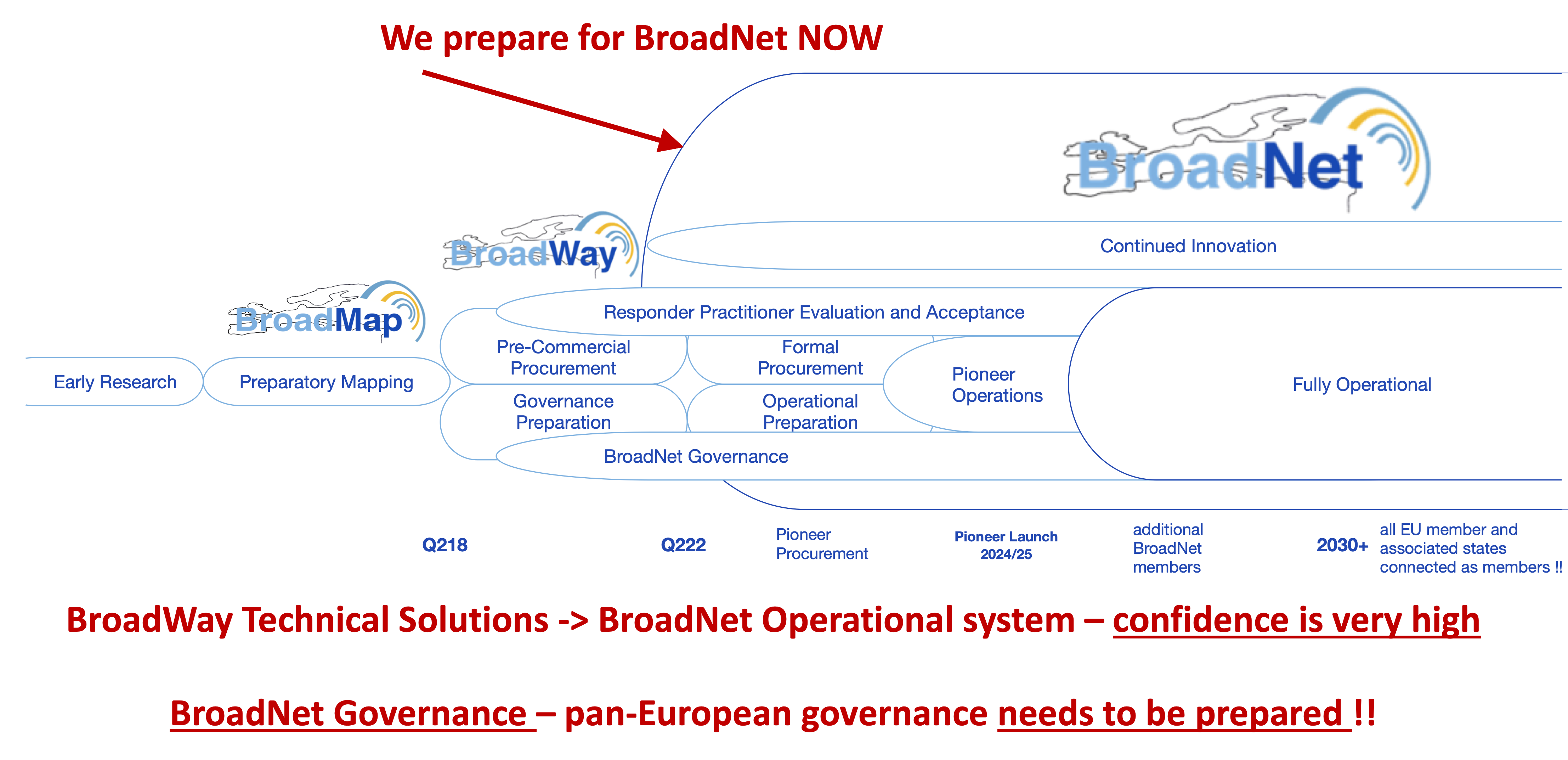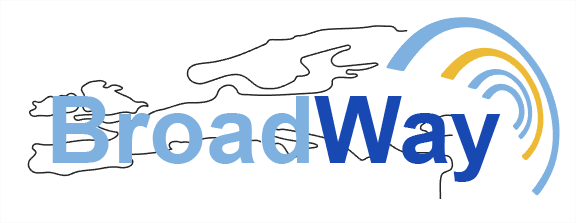The following diagram illustrates the progression towards a pan-European system of national Mission Critical mobile broadband systems that, together, will realise Operational Mobility. The ability for responders to carry out their life saving and crime fighting operations, using mobile broadband communication:
- Wherever they are
- Whenever they need to
- and cooperating with whoever they are tasked to cooperate
… regardless of geopolitical boundaries. The animation on our home page explains this best.

BroadNet Preparation is open to national authorities responsible for providing mobile communications for public safety in their country.
The following principles are maintained:
- European level Governance must be maintained throughout the lifetime of BroadNet.
- No single, or small group of countries should dominate governance of BroadNet.
- To build a trusted organisation with a real ability to evolve over time with the arrival of new BroadNet members and their users.
- European Commission funds must be available to maintain European Level Governance and contribute to the operational costs of the BroadNet Operational System.
- Operational costs of the BroadNet Operational System are shared by all BroadNet members connecting to the BroadNet Operational System.
5 Tasks are defined with 27 work items currently identified. Tasks are:
- Legal and Contractual Preparations
- Funding Model
- Initiate Organisation
- Define Operating Standards, Policies and Rules
- Political and Communications
Representatives of each organisation involved lead and take part in work items to prepare Governance for the future BroadNet system of systems which will realise the Operational Mobility capability for European responders.
15 countries are represented which extends beyond the BroadWay partnership.
If you represent an organisation that should be involved in BroadNet Preparation, please click here to contact us.
Belgium (Astrid)
Czech Republic (Ministry of Interior, Supported by NAKIT)
Estonia (RIKS)
Finland (Erillisverkot, Virve2.0)
France (Ministry of Interior ; RRF)
Greece (Kemea)
Ireland (An Garda Siochana)
Italy (Ministry of Interior – Polizio di Stato)
Latvia (Ministry of Interior)
Norway (DSB – Norwegian Directorate for Civil Protection)
The Netherlands (Ministry of Justice and Security, supported by Police of the Netherlands)
Romania (Special Telecommunication Services)
Spain (Ministry of Interior – Guardia Civil)
Sweden (MSB – Swedish Civil Contingencies Agency)
Switzerland (Federal Office for Civil Protection)
European Commission DG Home has been the primary funder and supporting organisation since they called for proposals for a study Horizon 2020 DRS-18-2015 ‘ Communication Technologies and interoperability topic 1: interoperable next generation of broadband radio communication system for public safety and security’. Details of the call topic can be found in the 2014-15 Secure Societies Workprogramme.
Project BroadMap started the process. Details can be found on the BroadMap website.
BroadWay was funded under subsequent programme SEC-04-DRS-2017 ‘Broadband Communication Systems’. Details of the call topic can be found in the 2016-17 Secure Societies Workprogramme.
In March 2022, additional support was provided by European Commission DG Home as a part of Internal Security Fund (ISF), temporarily working as a distinct workpackage of the ENLETS2.0 programme.
Funding from European Commission (DG Home) has contributed to a total budget of ~€16M:
- BroadMap – €2 169 138 (100% funded by EC)
- BroadWay –
- Total Cost €13 131 438,56, (90% funded by EC)
- EC Contrib €11 818 294,70.
- Procurement budget €9 192 000
- BroadNet Preparation
- Initial ~€700K, 2022-2023
- Annual Funding, subject to contract 2023-2026: Section 2.2.5, Page 12: ISF Workprogramme 2023-2025
